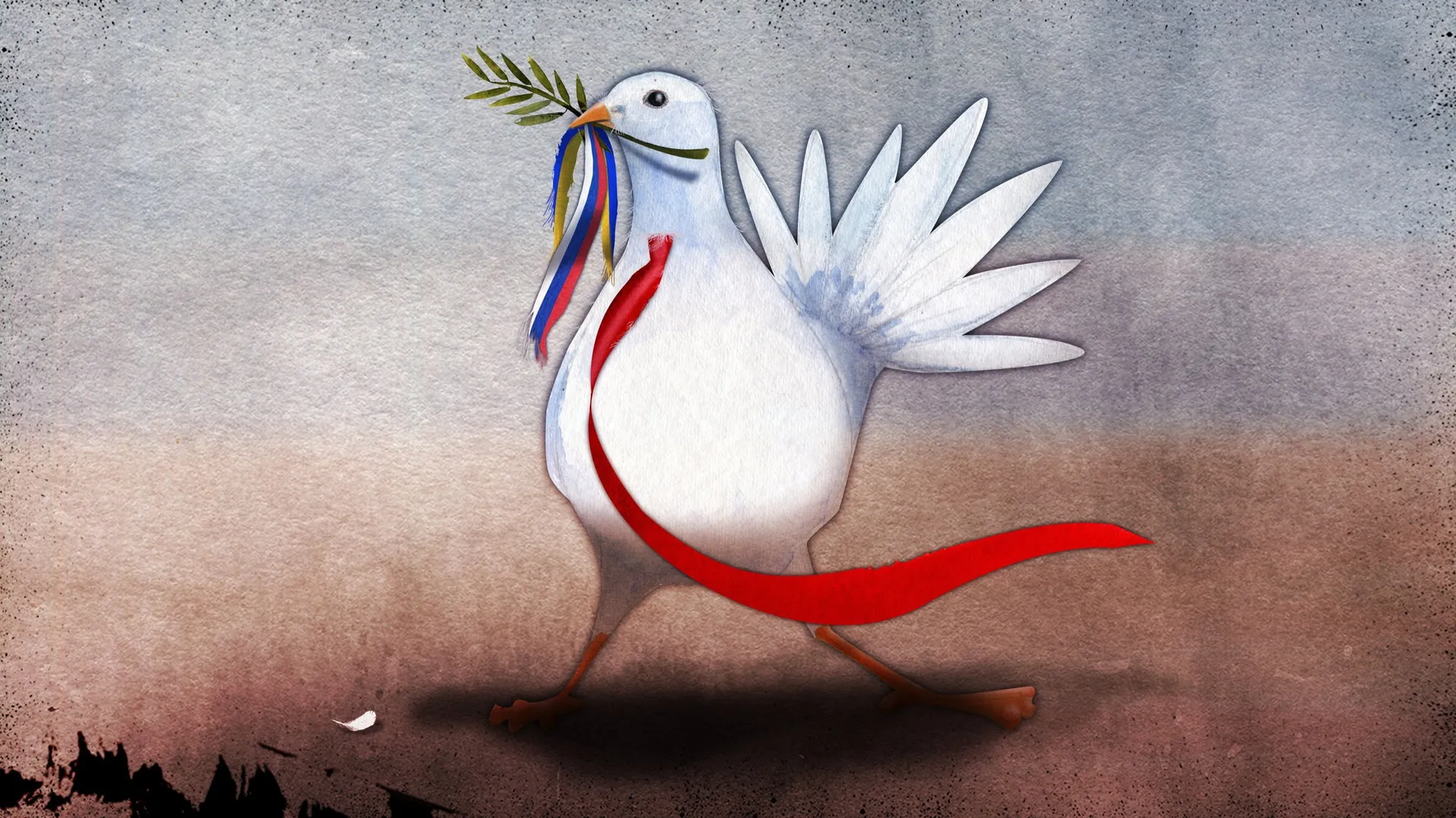
The writer is author of ‘Command’ and the Substack ‘Comment is Freed’
On Wednesday, US President Donald Trump and Russian President Vladimir Putin agreed to establish a negotiating process to end the Russo-Ukrainian war. Volodymyr Zelenskyy, president of Ukraine, the aggrieved party in the war, was not on the call but Trump rang him afterwards to tell him about what had been agreed, and presumably the role he might be allowed to play. Zelenskyy, who has worked very hard since well before last November’s US election to stay close to Trump, declared himself satisfied with the call.
This is despite comments from US officials dismissing two core features of Ukraine’s demands: the return of all territory seized illegally by Russia and security guarantees backed by the US, preferably through Nato. Trump administration officials have been consistent in pointing to Ukraine’s inability to liberate all its lost territory through military means. Meanwhile, the new American defence secretary, Pete Hegseth, told his Nato counterparts that the US no longer saw European security as its main priority. He added that while Ukraine could expect its own security guarantees, these would be provided by Europeans.
As ceasefire lines tend to get frozen, this prospect is viewed apprehensively in Kyiv, on account of the towns and people lost to Russian occupation. Yet while Trump’s readiness to bring Putin in from the cold and offer him pre-emptive concessions has led to widespread dismay among Ukraine’s supporters, negotiations have yet to begin and we are far from an actual deal.
Many in Ukraine would welcome a ceasefire. The country is tired and bruised from almost three years of war and could use a respite to build up its armed forces and revive its economy. A ceasefire does not require, as the Russians expect, that it abandon hopes of recovering its lost territory forever. Nor have the Americans suggested that Ukraine should accede to the rest of Moscow’s demands — that it concede yet more territory to Russia, disarm its forces and change its regime and constitution.
Putin is no doubt delighted to be treated with respect by Trump. But without these other demands being met, he will not have achieved his war aims. He does not agree with American ideas for an early ceasefire largely based on the current line of contact between the two sets of forces, to be followed by negotiations on a longer-term peace settlement. To be sure, this would allow him to hold a large chunk of Ukrainian land, but there would also be the prospect of Ukraine reconstituting its forces with western support to return to the fight later. Russia would need to subsidise and police occupied territory, much of which has been ruined by a series of destructive battles, and defend a long border.
That is why Putin has demanded that a peace settlement that allows him to achieve his war aims of the subjugation of Ukraine be agreed prior to any ceasefire. His starting position is even more ambitious, as confirmed in his call with Trump. He wants to deal with what he considers the “root causes” of the situation — the development of a European security order unfavourable to Russia since the end of the cold war.
There is no reason to suppose that Trump is interested in any of this. Hegseth’s comments suggest that, as far as the administration is concerned, the Russians should talk to Europeans about the future of Europe. And while Nato may be falling down the list of US priorities, it means that reversing the consequences of Nato enlargement is also a low priority. As Trump has stressed the importance of an early end to the fighting, he is not going to accept that a final settlement must be agreed before a ceasefire can come into effect. Negotiations to deal with all the outstanding issues could take many months. And, with the memories still fresh of what abandoning Afghanistan in August 2021 did to Joe Biden’s ratings, there are limits to how far Trump can push Kyiv into the loss of more sovereignty and territory, even if he wished to. His officials have said that he does not.
Most awkward for Putin is that his bargaining position is not that strong. Russia has enjoyed the military initiative since late 2023 and it has made incremental gains, but these have yet to reach the boundaries of the claimed territories and have come at an extraordinarily high cost. The campaign against critical infrastructure, intended to leave Ukraine shivering and in the dark through winter, has thus far failed.
And Ukraine has taken initiatives of its own. After six months it still holds a chunk of Kursk, which Zelenskyy has gamely offered to trade for the return of Ukrainian territory, and it now regularly attacks valuable targets inside Russia, including oil refineries. The Russian economy is starting to buckle under the strain, with official projections showing growth in decline while inflation remains high.
So as the negotiating teams start to engage, Putin has to work out whether he can walk away from his maximalist demands. Perhaps he could agree to a ceasefire but only with a strict negotiating timetable for a final settlement and some early relief on sanctions; maybe he could concede Ukraine EU membership. But if Ukraine stays independent and armed, he will have failed. Should Putin end up being blamed for the failure of this big push for peace, he might find that even Trump is ready to step up support for Kyiv and impose more sanctions on Russia.